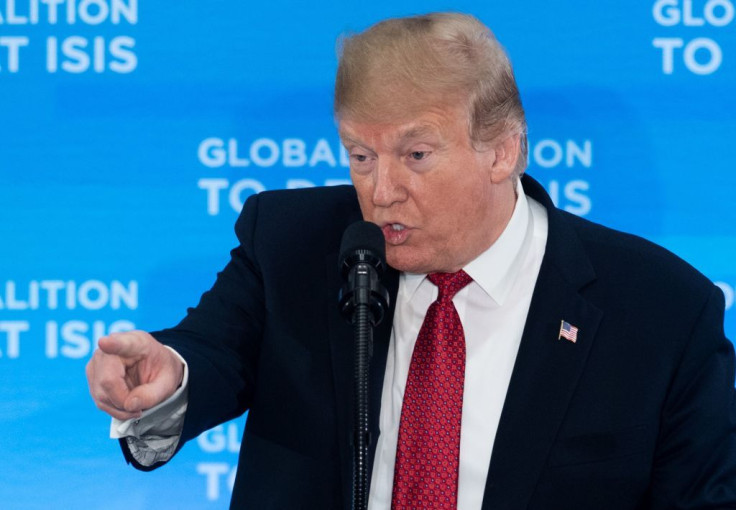Trump Denies US Return Of ISIS Bride, Hoda Muthana ‘Not A Citizen’

President Donald Trump has taken a personal interest in the complicated case of “ISIS bride” Hoda Muthana, who was born in New Jersey, grew up in Alabama -- but is the child of a Yemeni diplomat once assigned to the United States.
Muthana has petitioned the federal government for permission to enter the United States from Syria, claiming it’s her right as a U.S. citizen to return home. That request was denied, apparently on the personal order of Trump.
"I have instructed Secretary of State Mike Pompeo, and he fully agrees, not to allow Hoda Muthana back into the Country!” tweeted Trump.
Trump’s order came after Pompeo on Wednesday said Muthana is “not a U.S. citizen and will not be admitted into the United States.”
Muthana, 24, joined ISIS in Syria in 2014 and is now pleading to be allowed to return to the U.S. She has an 18-month old baby. Muthana had three husbands, all ISIS fighters, who were killed on the battlefield.
Although her lawyer claims Muthana is a U.S. citizen by virtue of her birth in New Jersey in 1994, the fact her father was a Yemeni diplomat to the U.S. at the time seems to negate the “jus soli” or the birthright citizenship principle of nationality law. U.S. law exempts children of diplomats from this principle.
Pompeo and the State Department, however, didn’t explain its basis for declaring that Muthana isn’t a U.S. citizen. One of Muthana’s lawyers, Hassan Shibly, believes this is because her father was a diplomat at the time of her birth. Babies of diplomats don’t get citizenship like other babies born in the U.S.
Shibly claims Muthana’s father stopped working as a diplomat months before she was born in Hackensack, New Jersey on Oct. 28, 1994. He provided evidence such as a photo of Muthana’s birth certificate.
Another is a letter from the United States Mission to the United Nations dated Oct. 14, 2004 stating that Muthana’s father, Ahemed Ali Muthana, was a diplomat for Yemen from Oct. 15, 1990 to Sept. 1, 1994. Muthana’s father also provided a letter showing he had been discharged as a diplomat.
The Trump administration says Hoda Muthana isn't a US citizen b/c her father was a diplomat when she was born
— Ellie Hall (@ellievhall) February 20, 2019
Muthana's lawyer has shared a letter from the UN to US immigration stating that Hoda's father's diplomatic status ended a month before her birth https://t.co/RFgDlj1xyn pic.twitter.com/9l77sGjQzW
After Muthana joined the murderous terror group, she tweeted she was going to burn her passport. She also incited American jihadis to commit massacres in the U.S. The State Department then sent her family a letter saying her passport had been revoked.
The government’s case for denying Muthana her citizenship based only on Trump’s order stands on shaky legal ground.
“It is completely possible that there is a factual and legal dispute to be resolved here. But that can’t just be resolved by the president’s dictate,” said Stephen Vladeck, a professor at the University of Texas School of , who specializes in constitutional and national security law.
“There’s supposed to be process. If she applies for passport and is rejected, she’s entitled to challenge that. If the government claims she’s not a citizen, she’s entitled to challenge that. If the government concedes she’s a citizen but wants to revoke that, there’s a process for that.”
“No matter what the right answer, it’s supposed to come at the end of a process that’s not clear to me has taken place at all.”
© Copyright IBTimes 2025. All rights reserved.





















